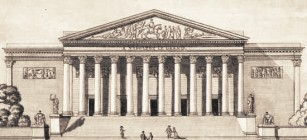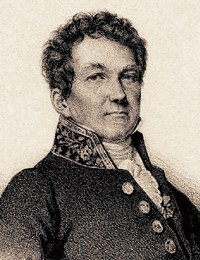 List of members of the House of Representatives.
List of members of the House of Representatives.
The House of Representatives was an assembly created by the Acte Additionnel aux Constitutions de l'Empire, during the Hundred Days. Ephemeral, it remained in place for just one month, from June 3 to July 13, 1815. Representatives sat in the palace of the Legislative Body (now the Palais Bourbon).

Agrandir
The elections
The decree convening the electoral colleges was published on April 30, 1815. Elections were held on May 8 and 22. They complied with the provisions of the Acte additionnel − not yet ratified by your people − which amended those set out in the previous constitutions of the Empire.
The election mechanism remained complex, but representatives were now elected rather than appointed by a senate. Eligibility required a minimum age of twenty-five but, in contrast to the provisions adopted during the Restoration, it was not subject to any financial conditions. Finally, the Assembly was renewed en bloc, every five years.
Abstention rates were very high. In sixty-seven départements, the electoral colleges failed to reach the quorum required by law (half the electorate plus one).

The results
The results were bad for Napoleon and his supporters. Out of six hundred and twenty-nine representative deputies, only around eighty were Bonapartists. Some forty former Jacobin republicans were elected. The remainder are liberals, including a number of moderate former revolutionaries. The royalists had no representatives, their voters having massively abstained.
Those elected to represent the Bonapartists were Lucien Bonaparte, Antoine Boulay de la Meurthe, Michel Regnaud de Saint-Jean d'Angély, generals Horace Sébastiani and Jean Rapp; the Republicans were Bertand Barère and Joseph Cambon; and the Liberals were Marquis Gilbert du Motier de La Fayette, Jean-Denis Lanjuinais and banker Jacques Laffitte.
All in all, Napoleon found himself faced with a rather heterogeneous chamber − the liberals did not form an organized party − but one that was ill-disposed towards the new regime, though not in favor of the one that had just collapsed.
Chamber action
The assembly met on June 3 and, on June 4, elected Jean-Denis Lanjuinais as president and the Marquis de la Fayette as vice-president.
On June 23, following the Emperor's second abdication, it recognized his son, Napoleon II, as Head of State. Together with the Chambre des Pairs, it then set up a government commission, of which it supplied three of the five members: Lazare Carnot, Joseph Fouché and general Paul Grenier. The following day, through one of their commissions, the Representatives set about drafting a new constitution. The draft, presented on June 29, was never acted upon.
On July 8, the day of the King's solemn return to Paris, the National Guard prevented the House of Representatives from meeting. It was officially dissolved on July 13, 1815 by decree of King Louis XVIII.